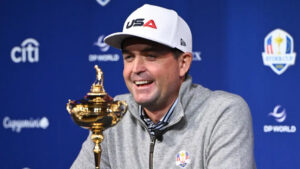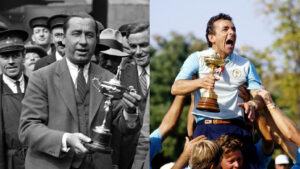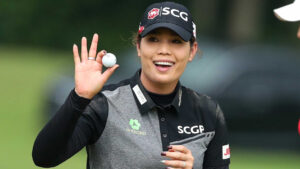
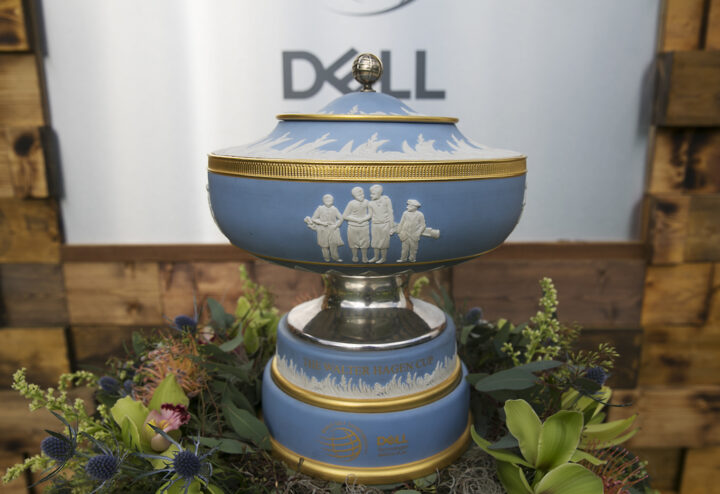
Group Stages Compromise WGC Match Play Golf
Knockout match play is unpredictable and that is why we like it. However, the demands of modern sport for sponsors and TV means that you also need to have your best players around if at all possible. Here is how the WGC Match Play Golf tried to solve the problem with group stages.
A Knockout Start
The World Golf Championship Match Play golf tournament ran from 1999 to 2023 in various golf match play formats and under various title sponsor names.
The longest running edition was the WGC-Accenture Match Play Championship from 2001 to 2014 and this was the era of a 64 man straight knockout draw. The early rounds created some of the best days in golf as the top golfers in the world were seeded according to their world ranking and giant killing was always on the cards in the first round as #64 took on #1.
The weekday rounds saw plenty of action with multiple games on the course at the same time and the nightly reveal of match ups for the next round. A bit like the Ryder Cup waiting to find out the match ups, it always created a buzz.
By the weekend though the semi-final and final saw only a couple of games on the course which meant there was less action to follow. Tiger Woods is the only #1 seed to win in the era of the straight knockout format and the closest the event came to a top seed final was when he defeated number 3 seed Davis Love III in 2006.
Read More: WGC Match Play Rankings For Top Points Scorers
Introducing Group Stages
In 2015 the format of the event changed to include group stage in an effort to ensure that the top seeds played at least 3 games and had the opportunity to progress to the knockout stages even if they lost a group stage match.
The revised format did not enhance the prospects of number 1 seeds winning as only Rory McIlroy (2015) and Dustin Johnson (2017) won in the next eight events, but there was never a final between two seeds in the top 14.
In 2015 and 2016 any halved group matches played out to a finish in sudden death but only 50% of the games were between two players who could both advance. 27% were between one player who could advance and one player who was out and 23% were dead with both players already eliminated.
When the event changed sponsor in 2017 to become the WGC-Dell Technologies Match Play any halved matches in the group stages saw each player get half a point. This reduced the number of dead games to an average of 8%, but increased the number of unequal games to 44%. This is where one player could advance but the opponent could not, so they are not playing under the same circumstances.
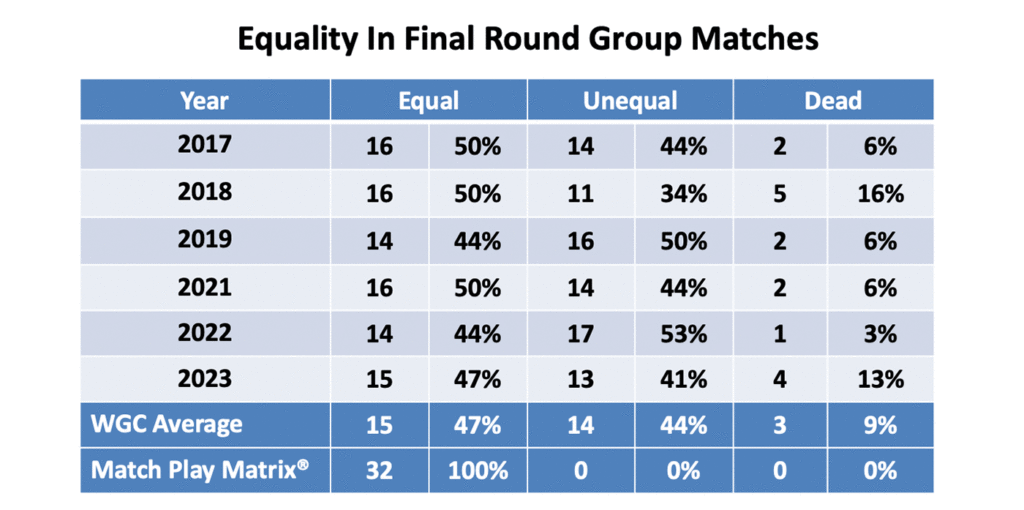
Weeding Out The Seeds
From 2017 to 2023 the Saturday round of the last 16 only comprised 30% of the top 10 seeds and the final four on Sunday only featured 29% of the top ten seeds. Clearly the format was not delivering the best players on the final day of the event.
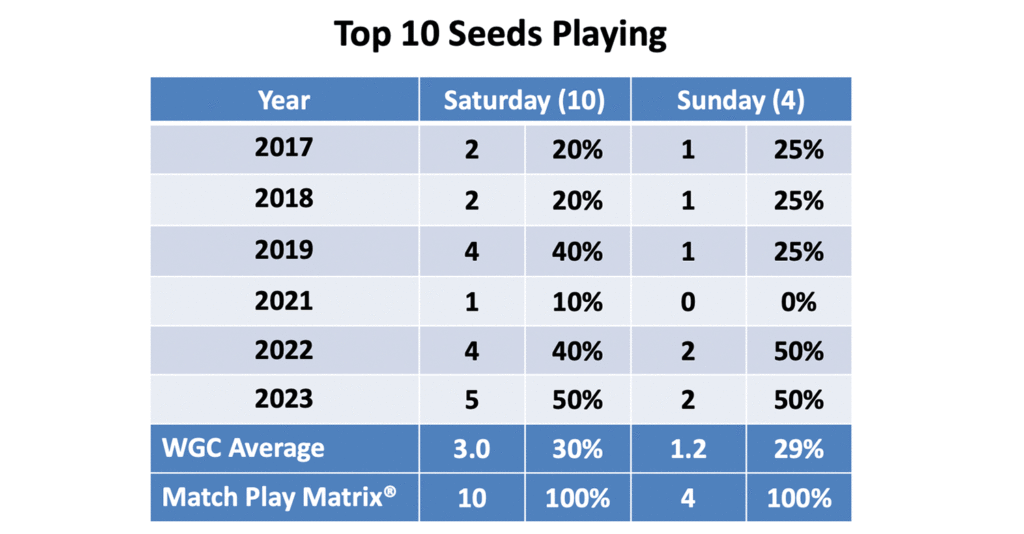
Defeated Champions
In a regular match play event, the winner is the last player left undefeated, but with group stages it is possible for players to advance without winning every game.
From 2017 to 2023, only 41% of players who made the last 16 had a 100% record. In the semi-finals this rose to 52%, but when it comes to the final, only 42% of finalists and 33% of champions had a 100% record. Indeed from 2018 to 2021, neither finalist had a 100% record.
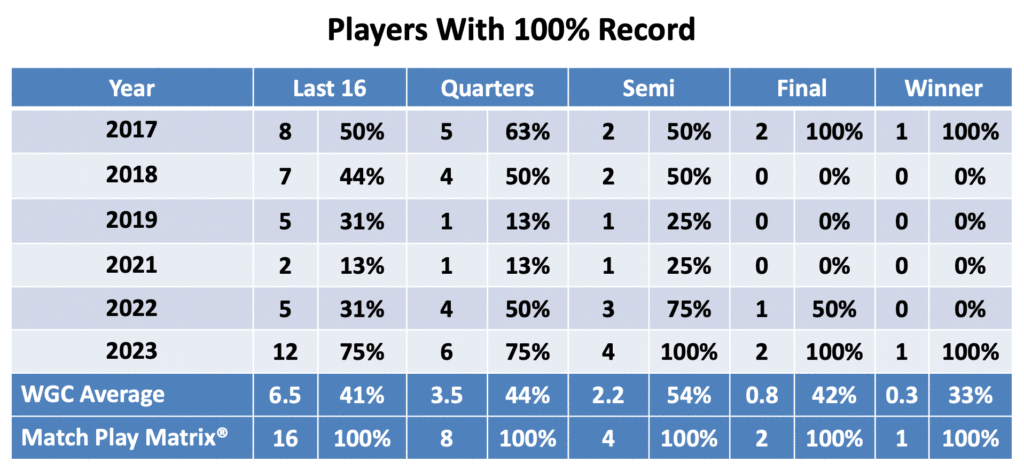
Keeping Seeds & 100% Champions
Match play is such a great format and everyone want to see the best players going head to head with each other more often. However knockout match play does not fit into modern sport so what is the alternative?
The Match Play Matrix® format solves all of these issues because:
- every player plays every round.
- every game is equal between two players with the same win ratio.
- the winner is the last player left with a 100% record.
- you can never play the same opponent twice.



